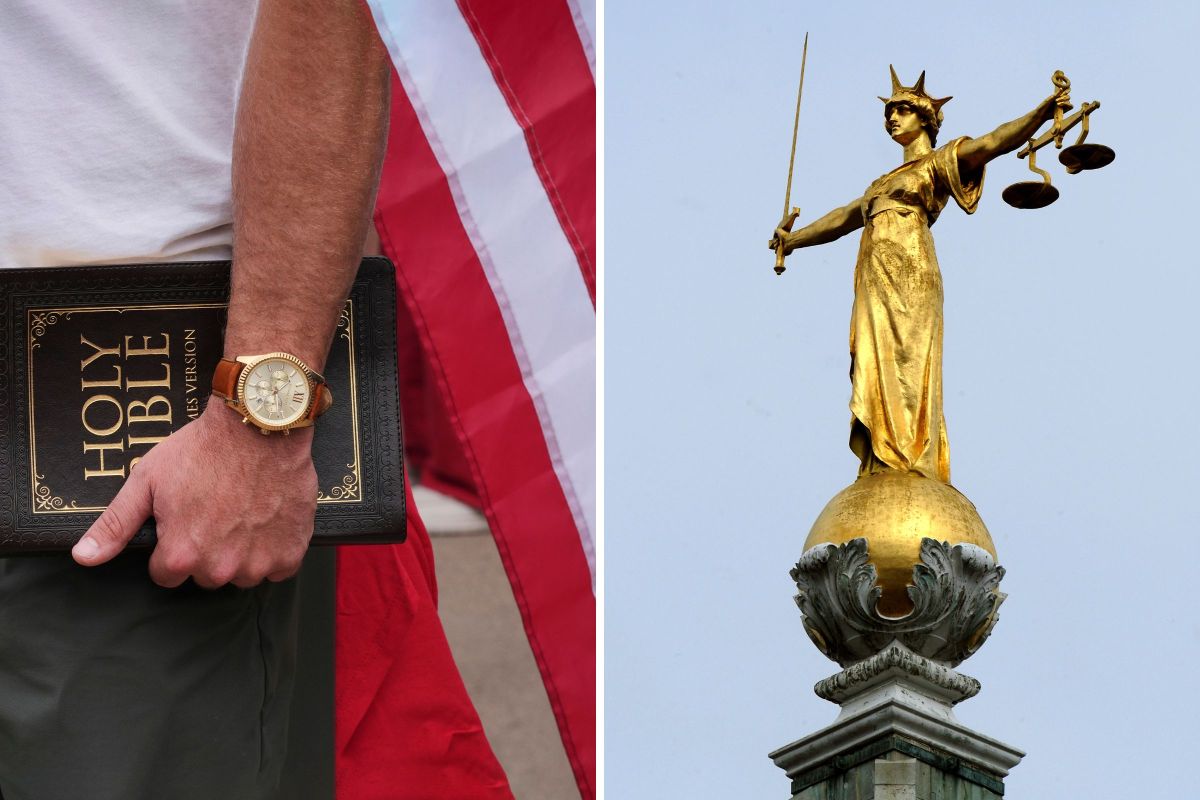Top Stories
Maine Supreme Court Weighs Religious Rights in Custody Battle

UPDATE: The Maine Supreme Judicial Court is currently deliberating a pivotal case that could redefine parental rights and religious freedoms. The court is assessing whether a lower court overstepped its authority by prohibiting a mother from taking her 12-year-old daughter to church and exposing her to Bible teachings. The decision, originating from a custody battle between Emily Bickford and Matthew Bradeen, could have sweeping implications for similar cases across the nation.
The controversy centers around a custody order issued on December 13, 2024, which granted Bradeen exclusive control over all religious decisions for their daughter. The ruling followed testimony regarding the potential psychological harm linked to the teachings of Calvary Chapel in Portland, Maine, where Bickford has been attending church. The court found that certain church teachings, including depictions of “fallen angels” and messages about “eternal suffering,” caused emotional distress for the child.
During oral arguments on November 13, 2025, Bickford’s attorney, Mathew Staver, argued that the order effectively grants Bradeen a “total veto” over Bickford’s ability to engage in religious activities with their daughter. He stated, “There is no finding of abuse or neglect,” and emphasized that the evidence presented did not sufficiently justify such restrictions. Staver claimed that the order is overly broad and violates constitutional rights, making a compelling case for the need to safeguard religious expression.
In contrast, Bradeen’s attorney, Michelle King, upheld the lower court’s decision as necessary to protect the child’s well-being. She asserted that the court acted within its rights to avoid substantial harm, referencing emotional consequences observed in the child due to exposure to specific teachings at the church.
Justices are now grappling with critical questions about the boundaries of judicial authority in religion-related cases. One justice raised concerns about whether the “best interest of the child” standard conflicts with principles of religious freedom. Staver responded that constitutional protections require courts to maintain a high threshold when limiting a parent’s religious expression.
The ruling, expected in the coming months, could clarify how Maine courts address psychological harm claims in custody disputes and set a precedent on the limits of judicial intervention in religious matters. The implications of this case resonate beyond Maine, as it raises fundamental issues regarding First Amendment rights and parental authority.
As deliberations continue, the legal community and the public are closely monitoring the outcome, which could have lasting effects on how parental rights and religious freedoms are balanced in courts nationwide.
Stay tuned for updates as the Maine Supreme Judicial Court prepares to announce its decision, which could reshape the landscape of parental rights and religious freedom in custody cases.
-

 Science2 weeks ago
Science2 weeks agoUniversity of Hawaiʻi Joins $25.6M AI Project to Monitor Disasters
-

 Business3 weeks ago
Business3 weeks agoForeign Inflows into Japan Stocks Surge to ¥1.34 Trillion
-

 Top Stories3 weeks ago
Top Stories3 weeks agoMarc Buoniconti’s Legacy: 40 Years Later, Lives Transformed
-

 Top Stories3 weeks ago
Top Stories3 weeks agoBOYNEXTDOOR’s Jaehyun Faces Backlash Amid BTS-TWICE Controversy
-

 Health4 weeks ago
Health4 weeks agoInnovative Surgery Restores Confidence for Breast Cancer Patients
-

 Sports1 month ago
Sports1 month agoSteve Kerr Supports Jonathan Kuminga After Ejection in Preseason Game
-

 Science1 month ago
Science1 month agoChicago’s Viral ‘Rat Hole’ Likely Created by Squirrel, Study Reveals
-

 Top Stories3 weeks ago
Top Stories3 weeks agoCarson Wentz Out for Season After Shoulder Surgery: Urgent Update
-

 Lifestyle1 month ago
Lifestyle1 month agoKelsea Ballerini Launches ‘Burn the Baggage’ Candle with Ranger Station
-

 Entertainment1 month ago
Entertainment1 month agoZoe Saldana Advocates for James Cameron’s Avatar Documentary
-

 Politics1 month ago
Politics1 month agoDallin H. Oaks Assumes Leadership of Latter-day Saints Church
-

 Lifestyle1 month ago
Lifestyle1 month agoDua Lipa Celebrates Passing GCSE Spanish During World Tour









